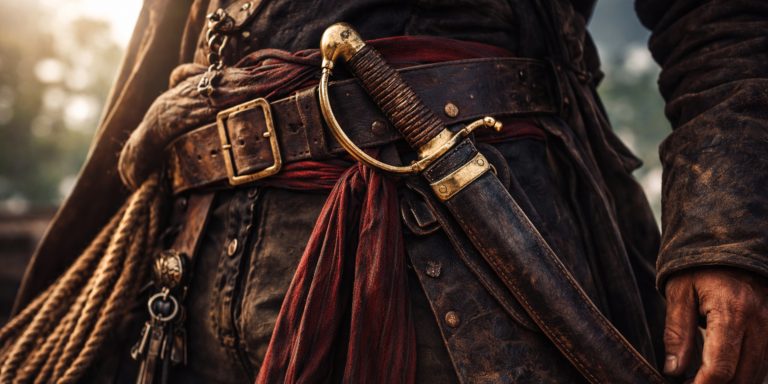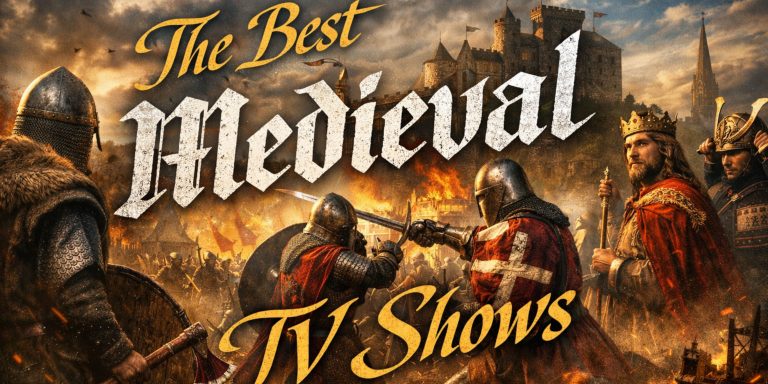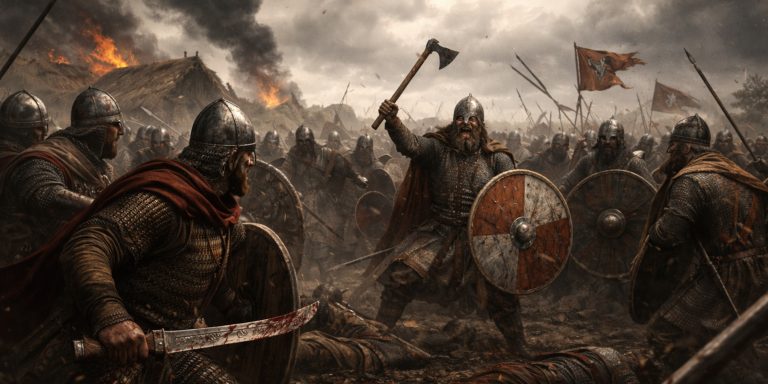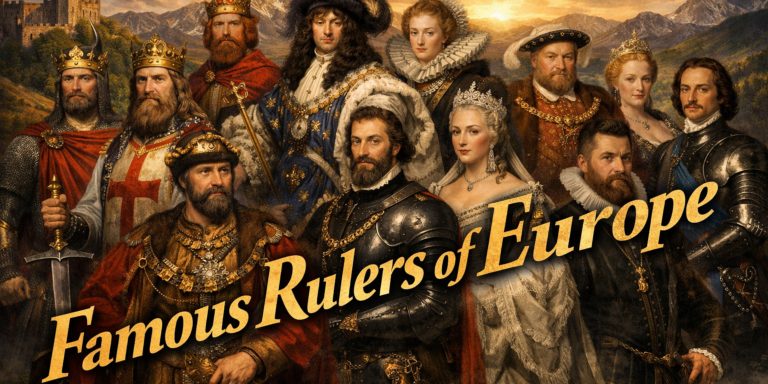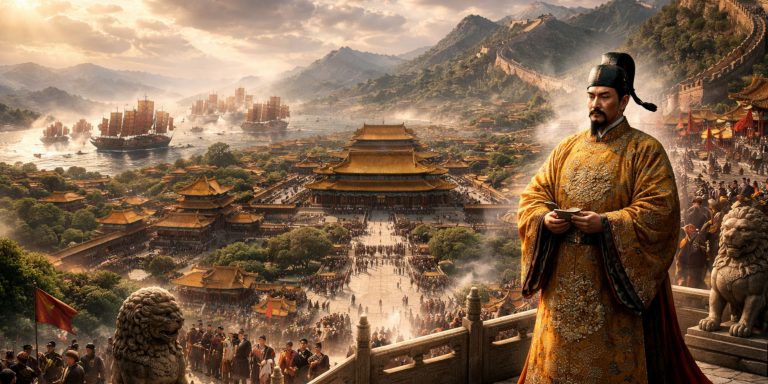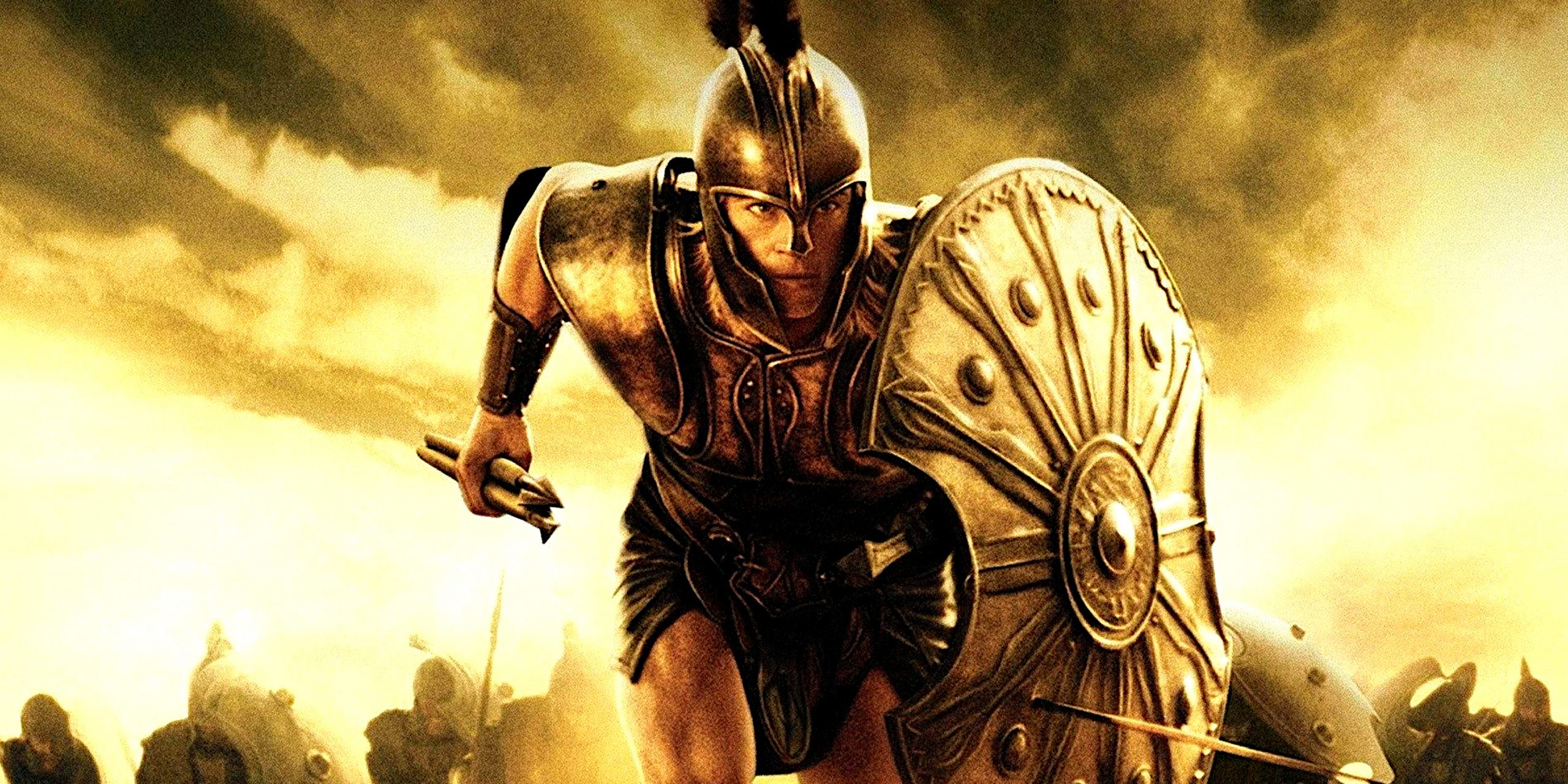
Wolfgang Petersen’s Troy arrived in that early 2000s moment when epics suddenly felt cool again. It had the cast, the budget, the sand, the spears, and enough slow-mo sword swings to make your teenage self feel like you had just witnessed history unfold. Yet beneath all that bronze armour sits a film that picks and chooses from Homer with surprising boldness, sometimes embracing the poem and sometimes swerving away from it with the confidence of someone who definitely did not read the whole text for homework.
The film does not pretend to recreate the Iliad line by line. Instead, it looks at the poem as a toolbox. It keeps the central players and the broad sweep of the Trojan War, then reshapes everything to suit early 2000s blockbuster logic. As a historian, watching this is a strange blend of fascination and mild eyebrow twitching, but it does make the story clearer for viewers who might be meeting these characters for the first time.
The Big Changes and Why They Matter
One of the most striking differences is the film’s insistence on stripping out the gods. Homer’s world is full of divine interference, petty celestial rivalries, and full-on meddling. Troy replaces that with political manoeuvring and human ambition. The story becomes less about fate and more about ego, pride, and people making terrible choices with complete conviction. It fits the era, where gritty realism was flavour of the decade.
Characters shift tone as well. Achilles becomes a moody celebrity warrior who feels one argument away from starting a podcast. Hector becomes even more heroic than Homer gives him, almost a moral anchor for the whole film. Paris turns from a cunning archer in the poem into a jittery lover who survives by sheer plot protection. The film reaches for emotional clarity over mythic complexity, which makes sense when you are trying to introduce a three thousand year old story to a general audience.
These changes also help the story move with a faster rhythm. Petersen tightens timelines, merges events, and treats the whole war like it lasted about three sweaty afternoons. Purists may wince, but the film knows exactly what it is doing. It wants pace, spectacle, and a sense of tragic inevitability, even when the details shift.
A New Heroic Style for a New Audience
Visually, Troy pulls the Iliad into something that feels grounded. The armour looks lived in, the fighting feels weighty, and the city of Troy has enough dust and texture to convince you it might actually exist just over the horizon. Achilles moves like an athlete instead of a demigod. Hector fights like a soldier who has spent years defending his walls. Even the ships feel like they came straight from some ancient shipyard rather than from a sketch in a mythological catalogue.
This grounded tone changes how heroism works in the story. Instead of larger than life figures locked in fate, we get people dealing with fear, loyalty, and personal honour. It is a shift that probably helped younger viewers connect with the story, especially those who came in knowing far more about superhero origin stories than ancient oral tradition.
What the Film Gets Right
For all its deviations, the film captures something important. The Iliad is a story about pride, loss, rage, and the fragile shape of legacy. Troy keeps that spirit alive. Achilles wrestles with the idea of a short life and lasting fame. Priam mourns the cost of war rather than its glory. Hector’s death scene carries real emotional weight, even if the details differ from Homer.
It is not the Iliad, but it is an interpretation that acts as a gateway. Plenty of people discovered Homer because they watched Brad Pitt leap at a man like he was pogo jumping with a spear. If a film can spark that curiosity, it is doing something right.
Why This Version Still Resonates
Rewatching Troy now, you realise how much it shaped the way modern audiences picture the Trojan War. The armour designs, the muted palette, the human focus, and even the soundtrack linger in the pop culture memory. It showed that ancient stories could be retold without leaning on strict mythological accuracy, and for many viewers it made the Iliad feel less like homework and more like a living narrative.
Does it take liberties? Absolutely. Does it understand the emotional heart of the poem? More than people give it credit for. And if it leads someone to pick up a translation of the Iliad and start comparing details, then the film has already won.
Watch the Trailer:

